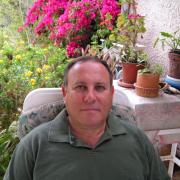Oded Maimon joined Tel Aviv University in 1987, from MIT, as a lecturer. Since 1990 he is a professor and in 1991 he became the department chairman (served for three terms). He spent Sabbaticals in BU (Boston) and BHU (Varanasi, India), and was invited to lecture and help direct leading universities around the world (including China, India, France and USA).Oded published over 75 refereed papers in leading academic journals, over 15 chapters in edited books, and made over 150 research presentations in international scientific conferences (most of them appeared in reviewed conference proceedings), with many invited and keynote presentations.He published several books (original work based on his research) – four books since 1998 (last one published by World Scientific 2005); and edited books – the last one is the handbook of Data Mining and Knowledge Discovery (1500 pages, Springer 2005, with over 100 contributors of leading experts from all over the globe) – the authoritative algorithmic book in one of the most fascinating growing computing areas.Oded has academically supervised over 90 graduate students (15 for Ph.D., including the first 10 of the IE department; some are already professors in Israel and the USA). He received over 20 funded research grants, and over 10 academic awards and scholarships. He was on editorial boards of 4 journals (including IEEE Transactions on Robotics and Automation). He has international patents (Europe, US, Japan). Oded started 10 new courses and developed 5 new laboratories in robotics and automation (in USA and Israel) - some are the core of the curriculum and research.Oded was consultant to major enterprises (such as in US: IBM, DEC, EMC; in Europe: Baan; in Israel: Telrad and Liraz) and was on the board (including chairman) of private and public (Israel and US) companies. He is a consultant to the Israeli government, and worked with the ministry of Science (including the head of the Israeli - France research activities).These are the research results of the last about eighteen years – the next "chai" years will be spent on understanding the big picture, for example the currently fragmented fields, such as knowledge discovery status now, or the need for heuristics in any meaningful problem. Ongoing projects include data fusion and developing information based KDD ontology algorithm with philosophical and psychological consciousness considerations to achieve a real machine understanding system.


